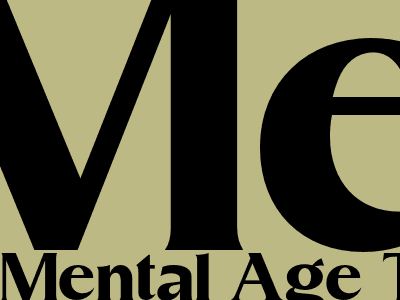Mental Age Test: Gauging Cognitive Abilities Accurately
Delving into the Concept of Mental Age
Mental age refers to an individual's cognitive development level, typically assessed using standardized tests. It provides valuable insights into a person's intellectual abilities and cognitive functioning, serving as a useful measure of cognitive growth and development.
Significance of Mental Age Assessment
Mental age assessments are commonly used for various purposes, including:
- Identifying developmental delays or cognitive impairments
- Evaluating intellectual functioning for educational placement
- Monitoring cognitive changes over time
- Assessing the impact of interventions or treatments
Mental Age vs. Chronological Age
It is important to note that mental age is distinct from chronological age. While chronological age represents the number of years a person has lived, mental age reflects their level of cognitive development. Individuals may have a mental age that is higher or lower than their chronological age.
Assessing Mental Age
Mental age is primarily assessed through standardized tests administered by trained professionals, such as psychologists or educational specialists. These tests typically measure various cognitive abilities, including:
- Verbal comprehension
- Perceptual reasoning
- Working memory
- Processing speed
The results of these tests are then used to calculate a person's mental age.
Factors Influencing Mental Age
Multiple factors can influence an individual's mental age, including:
- Genetics
- Environmental factors (e.g., nutrition, education, cultural experiences)
- Neurological conditions
- Developmental disorders
Limitations and Considerations
While mental age assessments provide valuable information, it is essential to recognize their limitations:
- Mental age tests are not always accurate, and results can vary depending on the test used.
- Cultural and socioeconomic factors can influence test performance.
- Mental age is not a fixed measure and can change over time.
Conclusion
Mental age assessment remains a widely used tool for understanding an individual's cognitive abilities and development. By providing valuable insights into their cognitive functioning, it aids in making informed decisions regarding education, intervention, and support.

Komentar